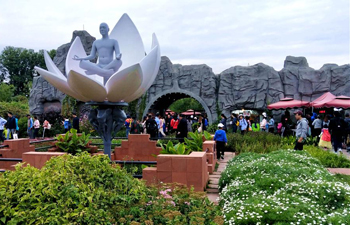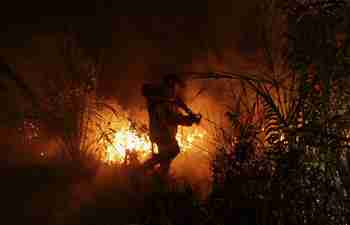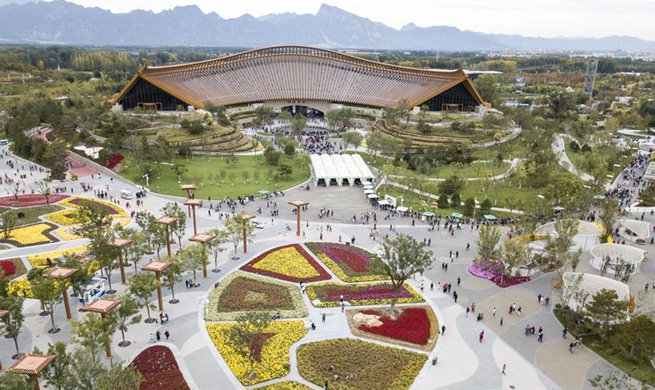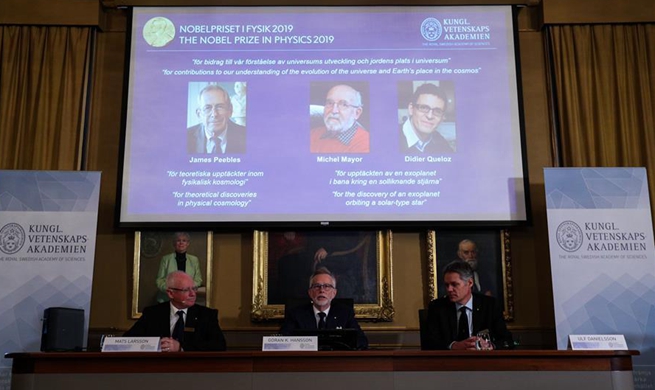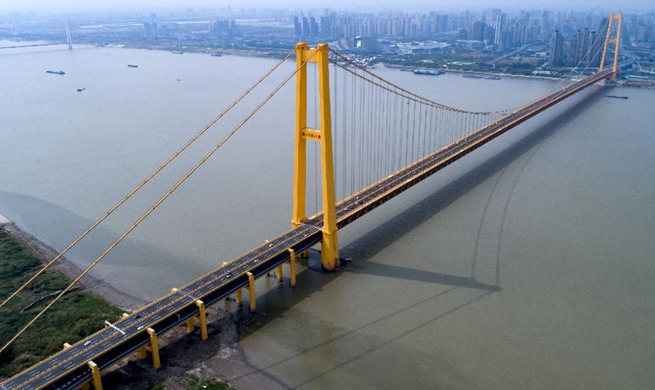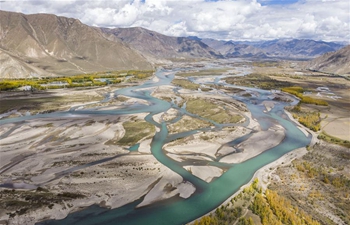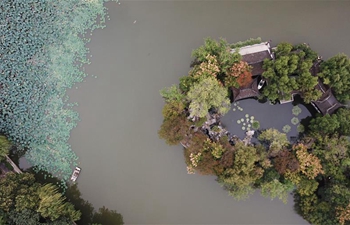by Mao Pengfei
SIEM REAP, Cambodia, Oct. 9 (Xinhua) -- As the 15th ASEAN Ministerial Meeting on the Environment is going on here, a Cambodian senior official said the meeting is a good opportunity for the bloc to enhance regional cooperation in environment.
During the two-day meeting starting from Tuesday, the ASEAN environment ministers will discuss a number of environmental issues including climate change, environmentally sustainable city, biodiversity conservation, coastal and marine environment, environmental education, water resource management, chemical and hazardous waste management, and transboundary haze pollution control, Environment Ministry Secretary of State Eang Sophalleth said.
"I'm confident that, during our time here, we will strengthen our regional cooperation in promoting sustainable development, in the realization of our vision of Clean and Green ASEAN," he told Xinhua.
In the journey of working toward the vision, environmental concerns have become more important and pressing than ever, he said, adding that the cross-sector complexity and the transboundary nature of environmental issues have even placed greater burdens on states.
Meanwhile, he highlighted four key points that are most relevant to challenges, efforts, and plans for Cambodia in addressing environmental issues.
First, Cambodia has seriously taken on the matter of climate change, he said, adding that although Cambodia is a small contributor to global greenhouse emissions, the country remains vulnerable to climate change adverse impacts.
"The Ministry of Environment of Cambodia has actively worked on formulating and implementing mitigation and adaptation measures," he said.
Second, Cambodia has made good progress in institutional reforms to cope with environmental challenges, he said.
"With peace and political stability, and a sustained annual economic growth rate of more than 7 percent (in the country), the annual budget for the Ministry of Environment has been steadily increased," Sophalleth said.
Third, Cambodia has also greatly promoted the conservation of its natural resources, he said, adding that Cambodia's forest degradation rate has dropped to below 1 percent in 2016.
"We no longer granted economic land concession for rubber or palm oil plantations," he said. "Existing economic land concessions are being strictly monitored and evaluated."
He said the country has more than doubled its protected areas from 23 to 54 and increased the size of its protected areas including the biodiversity conservation corridors to around 7.5 million hectares (some 42 percent of its surface area).
Carbon trading schemes are being implemented and the protected areas have been turned into ecotourism destinations across the country, he said.
"Within the protected area systems, we have increased the number of community protected areas and encouraged them to establish community-led ecotourism and provide other related supports in order to not only leverage their income generation, but to minimize pressure on natural resources," he said.
And fourth, the country decentralized its waste management functions to local governments, he added.
Despite Cambodia's efforts and achievements, the country is fully aware of challenges ahead of it, Sophalleth said, adding that Cambodia is committed to cooperating with all partners, especially the ASEAN member states, and ASEAN plus three (China, Japan and South Korea), among other partners, towards a "clean and green" ASEAN community.
He said Cambodia also expressed its concerns over the issue of marine plastic debris pollution, one of the most pressing environmental issues in the region.
Cambodia reiterated its commitment to the Bangkok Declaration on Combating Marine Debris in ASEAN Region, and expedited the implementation of the ASEAN Framework of Action on Marine Debris, he said.
"We encourage all ASEAN member states to mainstream this Framework into the national, city and local agenda," he said. "I am confident that with our collective wills and efforts, we can bring about the substantive outcomes towards attaining sustainable development in the ASEAN region."
According to Sophalleth, the two-day meeting is expected to adopt an ASEAN Joint Statement on Climate Change, the nomination of ASEAN Heritage Parks, and ASEAN Strategic Plan on Environment.
ASEAN (Association of Southeast Asian Nations) groups Brunei, Cambodia, Indonesia, Laos, Malaysia, Myanmar, the Philippines, Singapore, Thailand and Vietnam.



